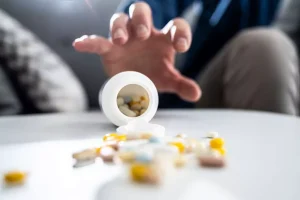
They can assess the severity of the alcohol dependence, recommend appropriate treatment options, and monitor the individual’s progress. It is important to remember that managing alcohol withdrawal seizures should always be done under the guidance and supervision of healthcare professionals to ensure the best possible outcomes. When it comes to alcohol withdrawal seizures, certain risk factors can increase the likelihood of experiencing them. Understanding these risk factors can help individuals and healthcare professionals identify those who may be more susceptible. The key risk factors for alcohol withdrawal seizures include heavy and prolonged alcohol use, previous history of seizures, and co-occurring medical conditions. It’s important to note that not everyone who experiences alcohol withdrawal will develop seizures.
Seeking Professional Help for Alcohol Dependence

The likelihood of seizures during alcohol withdrawal depends on various factors, including the individual’s drinking patterns, duration of alcohol abuse, and overall health. Factors that may increase the risk of seizures include a history of previous alcohol withdrawal seizures, high alcohol tolerance, and co-occurring medical conditions. Abrupt cessation of alcohol intake after prolonged heavy drinking may trigger alcohol withdrawal seizures. Generalized tonic-clonic seizures are the most characteristic and severe type of seizure that occur in this setting. In these models, the withdrawal seizures are triggered by neuronal networks in the brainstem, including the inferior colliculus; similar brainstem mechanisms may contribute to alcohol withdrawal seizures in humans.

State Rehab Guides
Chronic depressant use and withdrawal can cause hypersensitivity in your nervous system. It’s worth noting that opioids share many similarities with depressants, but they don’t work with GABA in the brain as alcohol does. If you’ve gone through opioid withdrawal before, you may need to experience the kindling effects.
- Alcohol has a depressant effect on the central nervous system and alters the way gamma-aminobutyric acid (GABA) receptors work.
- Seizures are sudden, uncontrolled spurts of electrical activity in our brain that change or disrupt normal messaging in our brain.
- Treatment may involve medications such as benzodiazepines to manage withdrawal symptoms and prevent future seizures.
- Telling the difference between these types of seizures can be difficult and additional medical support should always be sought if the individual is unsure.
- GABA is a neurotransmitter that inhibits certain chemical messages from being transmitted through the nervous system.
Treatment for Alcohol Use Disorder (AUD)
When you seek medical attention, a healthcare provider will assess your condition and determine the appropriate course of action. They may conduct a physical examination, review your medical history, and ask about your alcohol consumption. These assessments help in understanding the severity of your withdrawal symptoms and the potential risks of Halfway house seizures. Certain medical conditions can contribute to an increased risk of alcohol withdrawal seizures. Individuals with underlying neurological conditions, such as epilepsy or a seizure disorder, may be more susceptible to seizures triggered by alcohol withdrawal. Additionally, other medical conditions that affect the brain, liver, or metabolism can influence the risk of seizures during alcohol withdrawal.
Brain Chemical Upheaval

Seeking professional assistance is essential for proper medical evaluation, diagnosis, and treatment. It’s important to note that not everyone who abuses alcohol will experience seizures. However, the risk is significantly higher in those who engage in heavy can alcohol withdrawals cause seizures or chronic alcohol consumption, especially during periods of alcohol withdrawal.

Higher Risks for People With Epilepsy
- They can provide guidance, support, and evidence-based interventions to help individuals overcome their addiction and reduce the risk of seizures.
- Seizures related to alcohol are most common during alcohol withdrawal seizures i.e., during the process of withdrawing from alcohol.
- Therapy and counseling are essential for managing and preventing alcohol seizures, especially related to alcohol withdrawal.
- Alcohol withdrawal seizures typically aren’t deadly on their own, but they can lead to dangerous complications.
- Substance misuse is defined as the repeated use of a psychoactive substance for purposes other than those for which they are meant to be used or using them in excessive amounts.
- Drinking alcohol in small amounts generally does not trigger seizures, but seizures can result from alcohol withdrawal.
Key strategies for prevention include moderation in alcohol consumption and regular medical check-ups. If you or somebody you know are experiencing alcohol seizures, it’s a clear sign that professional help is needed. At The Blackberry Center, we’re dedicated to helping those struggling with alcohol abuse begin the journey to lifelong recovery. A particularly dangerous condition that can develop while going through alcohol withdrawal is delirium tremens, or DTs.
